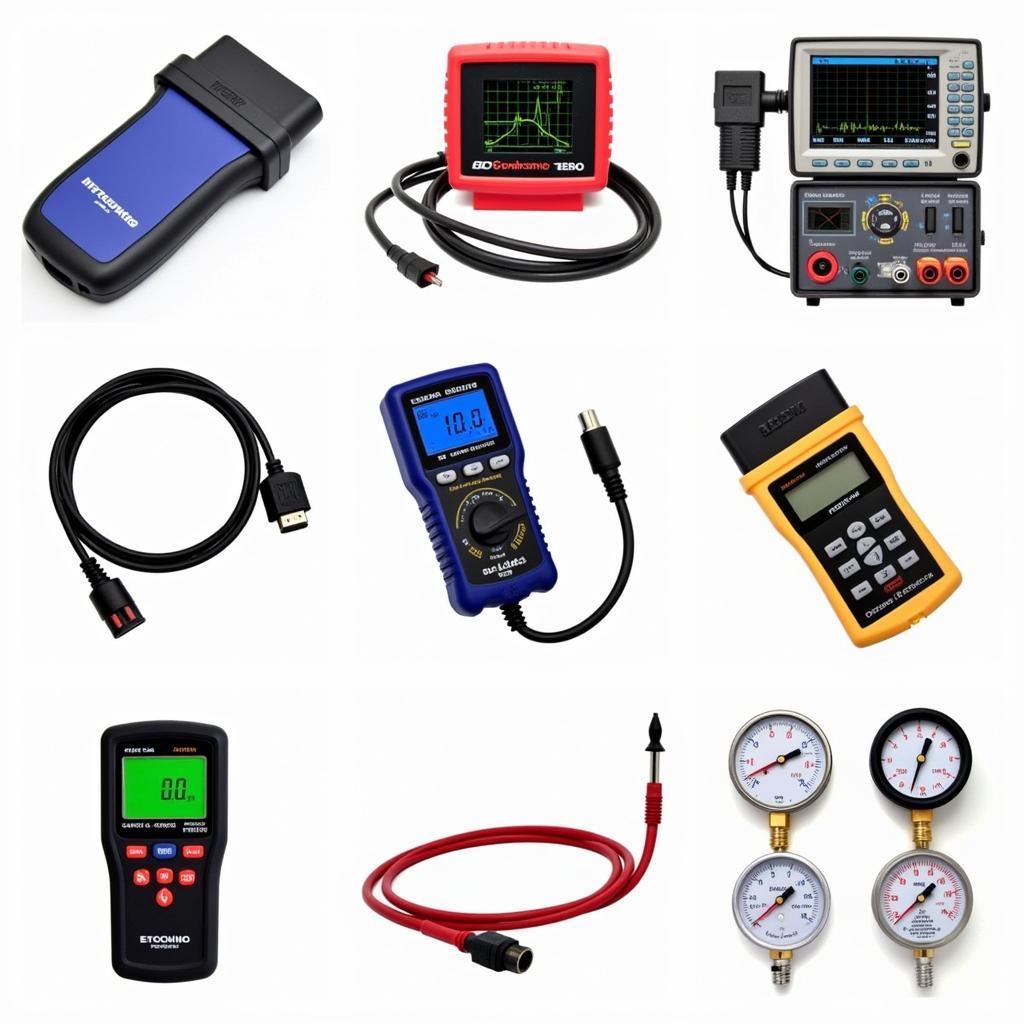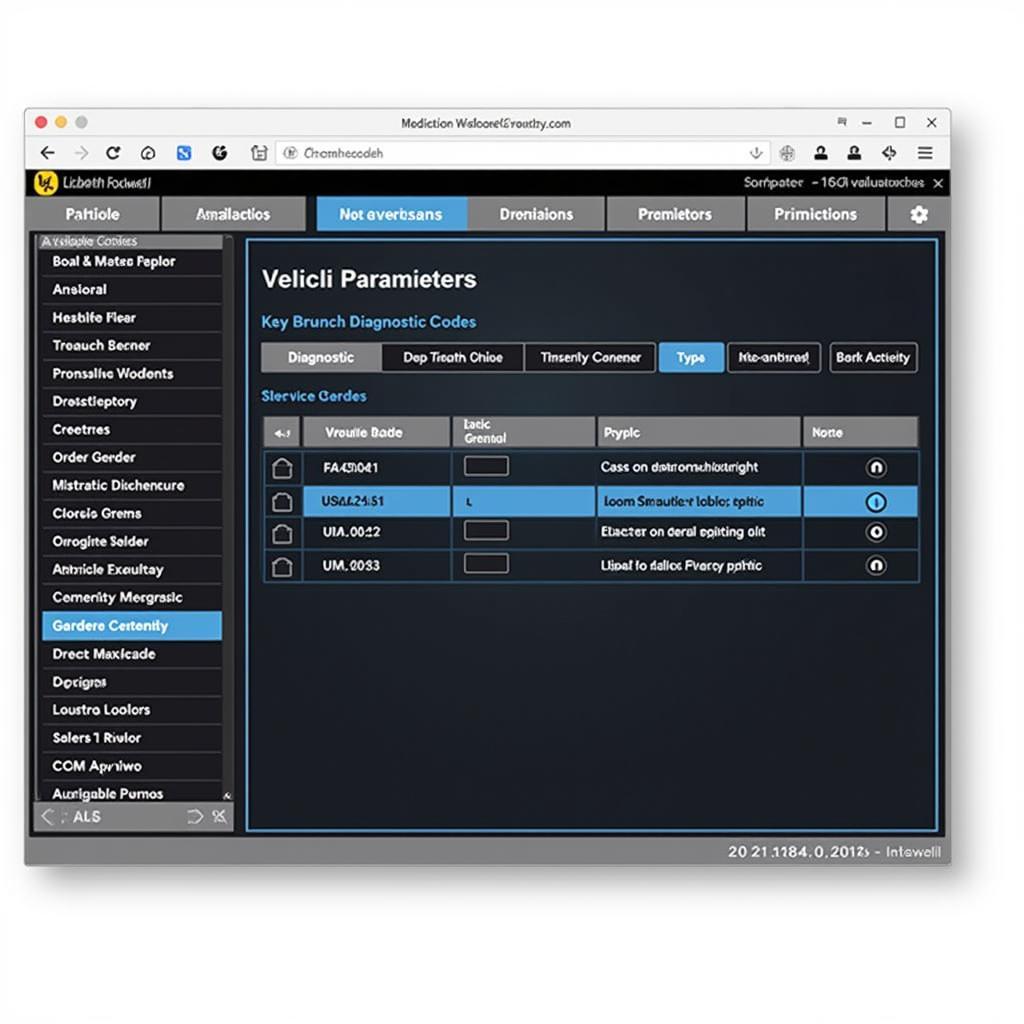Chelsea Foxwell Uchicago isn’t just a name; it represents a significant shift in how we approach automotive diagnostics and repair. This article explores the growing need for specialized software and devices in tackling modern vehicle issues, impacting both individual car owners and professional repair shops. We will delve into the complexities of modern vehicle systems and how leveraging advanced tools can significantly enhance diagnostic accuracy and repair efficiency.
The Evolving Landscape of Automotive Technology
Today’s vehicles are more technologically advanced than ever, integrating complex electronic systems that control everything from engine performance to safety features. This complexity presents a significant challenge for diagnostics and repair, as traditional methods often fall short. Troubleshooting these intricate systems requires specialized software and devices capable of interpreting the vast amount of data generated by modern vehicles. Chelsea Foxwell UChicago symbolizes this transition, emphasizing the importance of advanced training and understanding in this evolving field.
Imagine trying to fix a smartphone without the right diagnostic tools. You might be able to identify some surface-level issues, but truly understanding the problem requires specialized software. The same principle applies to modern cars. Chelsea Foxwell UChicago signifies a shift towards equipping individuals and professionals with the knowledge and resources to effectively diagnose and repair these increasingly complex machines.
Harnessing the Power of Diagnostic Software: The Chelsea Foxwell UChicago Approach
Diagnostic software acts as a window into the vehicle’s electronic control units (ECUs), providing valuable insights into the performance of various systems. These tools can read and interpret fault codes, monitor real-time data streams, and perform advanced functions such as actuator tests and system resets. For car owners, this means quicker identification of problems, potentially saving time and money on unnecessary repairs. For repair shops, the right software can dramatically increase efficiency and diagnostic accuracy.
Chelsea Foxwell UChicago and the Importance of Specialized Training
Understanding how to utilize these powerful diagnostic tools is crucial. Chelsea Foxwell UChicago highlights the importance of specialized training in this domain. Proper training allows technicians to navigate the complexities of diagnostic software, interpret data accurately, and make informed repair decisions. This, in turn, leads to more efficient repairs, improved customer satisfaction, and ultimately, safer vehicles on the road.
“Investing in the right training and tools is paramount in today’s automotive repair landscape,” says John Miller, a seasoned automotive engineer with over 20 years of experience. “The complexity of modern vehicles necessitates a deep understanding of electronic systems and the ability to use advanced diagnostic software effectively.”
Choosing the Right Diagnostic Equipment: Key Considerations
The market is flooded with various diagnostic tools, ranging from basic code readers to sophisticated scan tools. Selecting the right equipment depends on individual needs and budget. Factors to consider include vehicle compatibility, software features, user interface, and technical support. For professional repair shops, investing in high-quality, multi-brand scan tools with comprehensive software is essential. Car owners can benefit from more affordable code readers or OBD-II dongles that connect to smartphones or tablets.
Chelsea Foxwell UChicago: A Case Study in Diagnostic Excellence
The Chelsea Foxwell UChicago model emphasizes the importance of choosing the right tools for the job. Just as a surgeon wouldn’t use a general-purpose scalpel for every procedure, automotive technicians need specialized diagnostic equipment to address specific vehicle issues. Selecting tools that align with the specific needs of your vehicle or repair shop is crucial for achieving accurate diagnoses and efficient repairs.
 Different Types of Automotive Diagnostic Tools Available for Mechanics
Different Types of Automotive Diagnostic Tools Available for Mechanics
“Accurate diagnostics are the foundation of effective repairs,” explains Sarah Chen, an automotive electronics expert. “Using the correct diagnostic equipment saves time, reduces guesswork, and ultimately results in a better outcome for the customer.”
Conclusion: Embracing the Future of Automotive Repair with Chelsea Foxwell UChicago
The automotive industry is rapidly evolving, and keeping pace with these changes requires a proactive approach to diagnostics and repair. Chelsea Foxwell UChicago represents the future of automotive technology, highlighting the importance of specialized training, advanced diagnostic software, and the right equipment. By embracing these advancements, car owners and repair shops can navigate the complexities of modern vehicles and ensure safe and reliable operation. Connect with us at ScanToolUS for all your diagnostic needs. Call us at +1 (641) 206-8880 or visit our office at 1615 S Laramie Ave, Cicero, IL 60804, USA.


